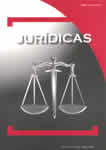Authors
Abstract
A state is the internal justifi cation of an organically elevated power over the associates. Said internal justifi cation must include moral and entailing guidelines between the order and the adhesion that materialize in acts of promising guarantees. These guidelines fi nd their nature, in most cases, under structures of performative speech acts. These acts emphasize the propositional content just by enunciating them. The performative acts require, for their validity, certain conditions that bring about fortunate or unfortunate, sincere or insincere of said act. At this point, the pretension of law correction results in the elements that based on performative structures unchains classifi cation and qualifi cation mistakes, and introduces the idea of legitimacy. Given certain omissions and treacheries of reality, legal and political systems that not accomplish the above mentioned conditions, acquire the classifi cation of illegitimate and, therefore, lose their reason for being.
References
AUSTIN, John Langshaw. (1990). cómo hacer cosas con palabras. Madrid. Paidós.
GÓMEZ, Adolfo León. (2006). Seis lecciones sobre Teoría de la Argumentación. Cali: Alego Editores.
HOYOS, Luís Eduardo. (2005). Relativismo y Racionalidad. Bogotá: Editorial Universidad Nacional de Colombia.
RAWLS, John. (1979). Teoría de la Justicia. México: Fondo de Cultura Económica.
SEARLE, John. (1995). La Construcción de la Realidad Social. Madrid. Paidós.

 PDF (Español)
PDF (Español)
 FLIP
FLIP





















